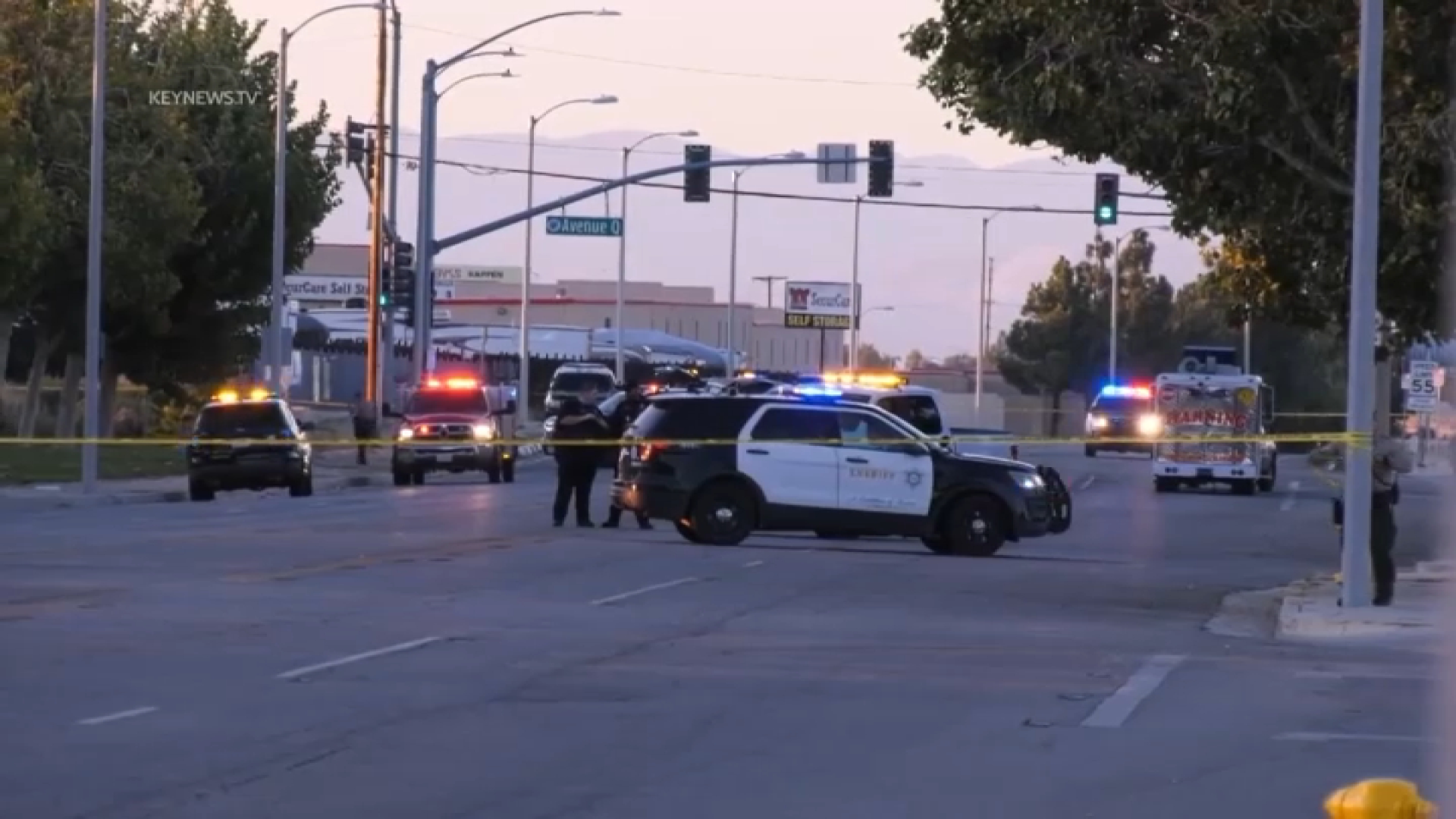The man charged with murder in the killing of a Los Angeles County sheriff’s deputy in an ambush shooting appeared in court Wednesday and entered a dual plea of not guilty and not guilty by reason of insanity.
Kevin Salazar, 29, was arrested Monday in the deadly shooting of 30-year-old Los Angeles County Sheriff’s Deputy Ryan Clinkunbroomer at a Palmdale stoplight.
Salazar was charged with murder, plus special circumstance allegations of murder of a peace officer, murder committed by lying in wait, murder committed by firing from a car, and personal use of a firearm. He entered a dual plea of not guilty, denying all special allegations, and not guilty by reason of insanity.
Get top local stories in Southern California delivered to you every morning. >Sign up for NBC LA's News Headlines newsletter.
He was being held on no bail.
Defense Attorney George Rosenstock was asked to elaborate on the dual plea, but did not speak specifically to Salazar's case.
"It is the responsibility of counsel to evaluate all possible defenses," he said.
Salazar was escorted into the courtroom wearing a blue vest. He was seated in a secured room during the hearing. His family did not respond to questions as they left the courthouse.
More than a dozen of the victim's sheriff's department colleagues also were in the courtroom.
Everyone who met him or knew him loved him. I'm so happy I was able to love him, but it was not long enough.
Fiancée Brittany Lindsey
The deputy was recently engaged to be married. Fiancée Brittany Lindsey was at a news conference Wednesday with prosecutors and the sheriff after the charges were filed. She thanked law enforcement officers for their support and efforts to track down the shooter.
"He was so thoughtful and caring," Lindsey said. "Everyone who met him or knew him loved him. I'm so happy I was able to love him, but it was not long enough.
"Ryan, I miss you, and I love you so much. I don't know how to live without you, and I didn't ever want to imagine it."
Clinkunbroomer was shot and killed in his patrol vehicle as he was leaving the Palmdale Sheriff Station. The sheriff's deputy was in uniform in a marked patrol car when he was shot near the intersection of Sierra Highway and Avenue Q at a red light.
A tipster told police they recognized the suspect car in a wanted flyer. Sources told the NBC4 I-Team the tipster thought they’d been involved in an unreported road rage incident with the same car and driver in the last week.
Sheriff’s department SWAT officers arrested Salazar at his Palmdale home Monday after an hourslong standoff.
“Our deputies gave this suspect an opportunity to peacefully give up. That is not the right that was afforded to our deputy,” an impassioned Sheriff Robert Luna said in a news conference Monday.
Salazar’s sister said her brother has schizophrenia and was not in his right mind during the alleged shooting.
"We’re not justifying that,” she said, referring to the killing. “It hurts us, and I feel for the family. I pray for them. I pray for my brother as well. It’s just two sides to the story. Just, please, don’t punish him like if he was a regular person. He’s sick."
Clinkunbroomer was a third-generation law enforcement officer who served the department for eight years. Luna said he was a field training officer who took after his father and grandfather, who also served the force.
Luna said authorities have not determined a motive for the shooting. The sheriff also seemed unwilling to consider the idea of leniency due to Salazar’s schizophrenia.
“Whether mental health is a factor or not, think about this: if I had to go to your family and tell them that you were not coming home and you were just murdered, does it matter?” he said.
If Salazar's schizophrenia is proven, the court will need to determine whether he is fit to stand trial, said NBC4 legal analyst Royal Oakes. If found to be competent, Oakes said his defense could pursue the argument that Salazar did not know right from wrong at the time of the murder.
"This tactic gives the defense some options," said Oakes. "It sounds odd. On the one hand he’s saying not guilty, meaning he did not do the killing, but he is also saying not guilty by reason of insanity. Implying, 'Well, maybe I did do it, but if I did, I didn’t know right from wrong.'
"It’s likely the defense doesn’t have all the information they are going to need if the matter goes to trial. They don’t know what the prosecution has up their sleeve, how strong is the evidence that he actually did the killing, so it may turn to the condition of the defendant’s mental state."
NBCLA's Jonathan Lloyd contributed to this report.



